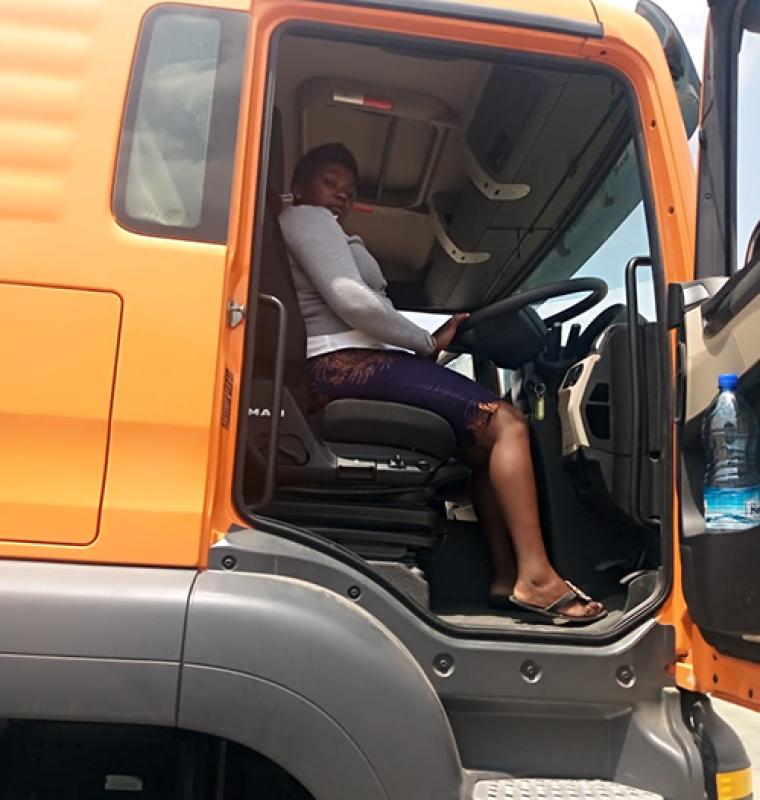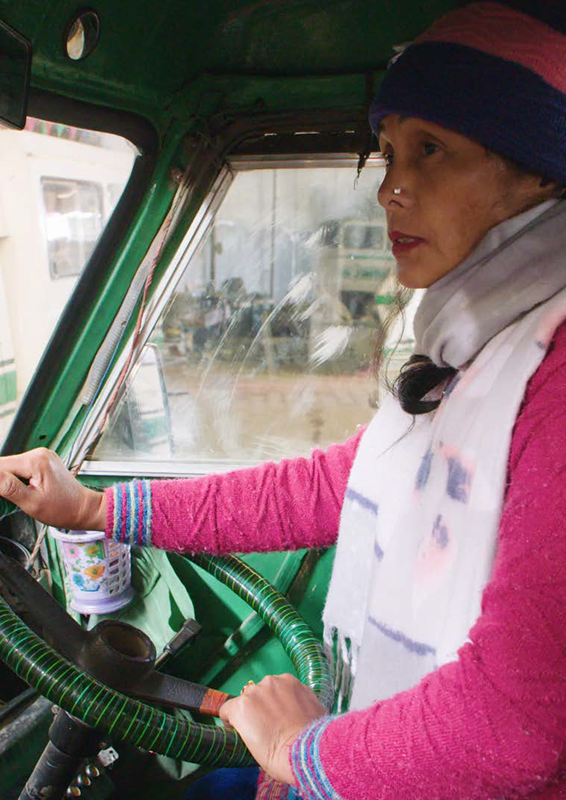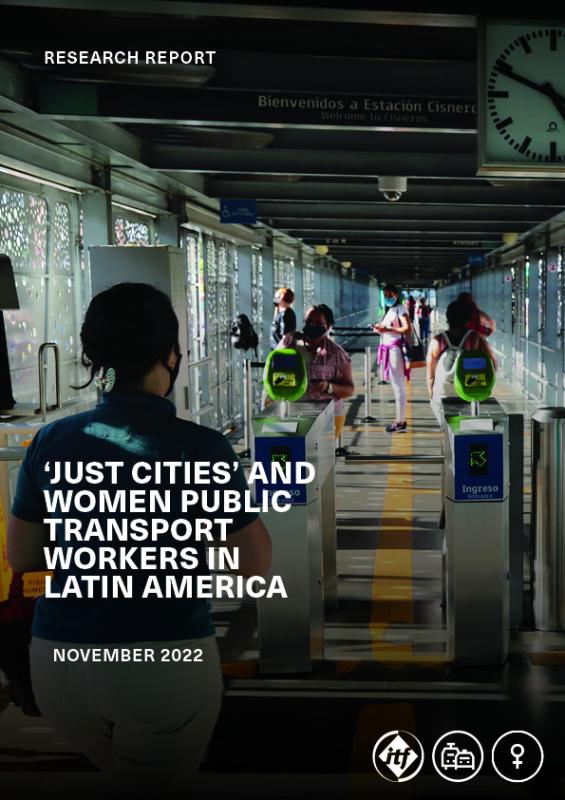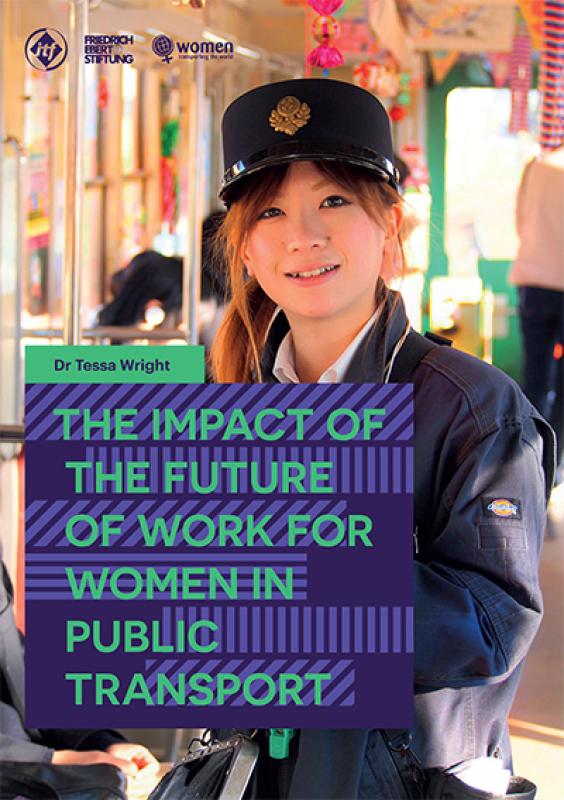
As novas tecnologias têm o potencial de trazer benefícios para as mulheres trabalhadoras em transportes, por exemplo, ao abrir novas oportunidades de trabalho. Porém, as mulheres estão quase sempre na ponta mais sensível da automação, já que seus empregos em funções de venda de bilhetes e atendimento ao cliente podem estar especialmente em risco.
Plataformas digitais de emprego podem fornecer trabalho flexível de transporte que atrai as trabalhadoras, porém há questões sobre acesso igualitário à propriedade de veículos e tecnologia, assim como garantir trabalho decente, incluindo situação empregatícia.
O uso de algoritmos, muitas vezes aplicados sem levar em conta a diversidade humana, pode alimentar a discriminação.
Há muitas ideias, conceitos e abordagens novas sendo desenvolvidas em cidades e no setor de transporte para se adaptar às novas realidades e melhorar os serviços, a sustentabilidade e a segurança.
Frequentemente, a questão de gênero é ignorada nas discussões sobre tecnologia, o que pode comprometer as condições de trabalho ou agravar desigualdades já existentes, caso não se adote uma perspectiva de gênero.
Os sindicatos devem ser incluídos como principais interessados na consulta sobre todos os novos desenvolvimentos tecnológicos no setor de transportes desde as etapas iniciais da discussão, para garantir que a nova tecnologia beneficie as mulheres trabalhadoras em transportes e nossas comunidades e para promover a igualdade de gênero.
SAIBA MAIS
- O futuro do trabalho: moldando um futuro com os trabalhadores no centro
- O impacto do futuro do trabalho para as mulheres no transporte público

Estamos vivendo uma emergência climática que não pode ser ignorada. No entanto, a mudança climática não é neutra em termos de gênero - as mulheres são comprovadamente mais vulneráveis às consequências dos impactos da mudança climática devido aos seus diferentes papéis sociais e ao acesso desigual aos recursos, aos órgãos de tomada de decisão e à tecnologia. As medidas relacionadas à política de mudança climática também afetam homens e mulheres de forma diferente.
Não há futuro sustentável sem que a igualdade de gênero ocupe posição central.
Garantir uma transição justa com igualdade de gênero deve ser uma prioridade enquanto a indústria de transportes responde à crise climática, assegurando a plena representação das mulheres trabalhadoras do setor nas lideranças que conduzem as discussões e negociações sobre transporte sustentável.
SAIBA MAIS

As finanças globais contribuem significativamente para a natureza mutável da indústria de transportes e dos direitos dos trabalhadores. As instituições financeiras internacionais (IFIs) financiam um grande número de projetos de desenvolvimento de transporte no mundo todo, aconselham governos sobre políticas de transporte e concedem empréstimos para empresas de transporte. Portanto, afetam as vidas de milhões de trabalhadores em transportes de todo o mundo.
As mulheres trabalhadoras em transportes podem se beneficiar do desenvolvimento de novos sistemas de transporte ou de mudanças nos sistemas existentes devido ao investimento de autoridades públicas, IFIs ou investidores privados.
Atualmente, os direitos das mulheres e igualdade de gênero são insuficientemente protegidos pelas estruturas de proteção da maioria das IFIs. Embora estejam longe de ser perfeitas, elas podem ser uma ferramenta fundamental e uma fonte de pressão para viabilizar os direitos das mulheres e melhorar os padrões trabalhistas.
Nossas prioridades para engajamento com IFIs:
- Fortalecer o emprego para mulheres e eliminar a exclusão sistêmica de mulheres do setor de transporte.
- Promover o trabalho decente.
- Eliminar a violência contra as mulheres trabalhadoras em transportes.
- Incluir as mulheres nas equipes de tomada de decisão/negociação.
- Reconhecer os sindicatos como partes interessadas.
- Facilitar uma transição justa e uma formalização liderada pelos trabalhadores.
- Fortalecer as salvaguardas das IFIs, principalmente na área trabalhista e de gênero.
SAIBA MAIS

O mundo do trabalho em constante mudança, o que inclui o aumento do trabalho mais precário e informal, está afetando o empoderamento econômico das mulheres e a concretização dos direitos da mulher.
Em muitos lugares do mundo, o transporte se concentra majoritariamente na economia informal. Os trabalhadores do transporte informal enfrentam insegurança no emprego, baixa remuneração, longas jornadas, maior risco de violência e assédio e falta de treinamento ou de oportunidades de trabalho formalizado. As mulheres ocupam os cargos mais precários do transporte informal.
É necessário que haja maior proteção para as mulheres que trabalham em atividades informais e precárias, como proteção de renda, benefícios de desemprego, benefícios de saúde e licenças, inclusive por doença, gravidez e responsabilidades de cuidado.
Com a introdução de novos sistemas de transporte, é essencial que os trabalhadores informais tenham a garantia de uma transição justa para um futuro de trabalho decente.
As avaliações do impacto sobre o trabalho, com dados discriminados por gênero, são uma ferramenta importante para dar visibilidade ao trabalho e às experiências das mulheres ao considerar a transição dos serviços de transporte informal para o formal.
SAIBA MAIS
- Os direitos das mulheres trabalhadoras em transportes e a Covid-19 - a história de uma cobradora de van, Quênia
- Mulheres nepalesas trabalhadoras em transportes informais e a Covid-19
- BRT (prioridade de trabalho do Transporte Urbano da ITF)




